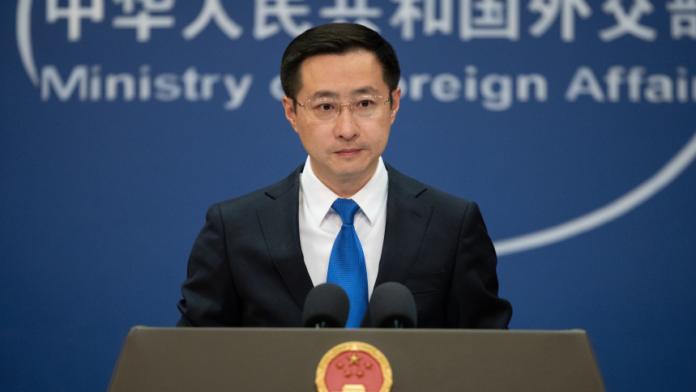
China has issued a strong warning to the United States over its reported plans to increase weapons sales to Taiwan, urging Washington to immediately halt such activities and adhere strictly to the one-China principle.
Speaking at a regular press briefing on Friday, Chinese Foreign Ministry spokesperson Lin Jian reiterated Beijing’s firm opposition to any form of military cooperation between the U.S. and Taiwan, which China considers an inalienable part of its territory. Lin emphasized that the Taiwan issue lies at the very heart of China’s core interests and represents a critical red line in China-U.S. relations.
“The Taiwan question represents the core of China’s core interests and constitutes the first and foremost red line that must not be crossed in China-U.S. relations,” Lin stated, following recent media reports about the U.S. government’s intention to ramp up arms sales to Taiwan.
Lin called on the United States to honor its commitments under the three China-U.S. joint communiqués, especially the August 17, 1982 Communiqué, which stipulates a gradual reduction in U.S. arms sales to Taiwan. He urged Washington to cease all military sales to the island and to avoid actions that could escalate tensions in the Taiwan Strait.
“China firmly opposes U.S. arms sales to China’s Taiwan region,” Lin said. “We urge the U.S. side to strictly abide by the one-China principle and the provisions of the three China-U.S. joint communiqués, particularly the August 17 Communique, cease arms sales to Taiwan, and refrain from creating factors that escalate tensions across the Taiwan Straits.”
He further emphasized that China’s commitment to defending its sovereignty and territorial integrity is resolute. “China’s resolve to safeguard its national sovereignty and territorial integrity remains unwavering,” Lin added.
The remarks come amid a period of heightened tension between Beijing and Washington over Taiwan, a self-governing democratic island that Beijing considers a breakaway province. The U.S. maintains unofficial relations with Taiwan and is legally bound under the Taiwan Relations Act to provide the island with means to defend itself, a policy that continues to irk Chinese authorities.
While the Biden administration has repeatedly expressed a commitment to the one-China policy, it has also increased military and political engagement with Taiwan, drawing repeated rebukes from Beijing.
Analysts view this latest exchange as a sign of the growing friction between the world’s two largest economies over Taiwan, an issue that continues to pose a major challenge to bilateral ties. China has consistently viewed any external military support for Taiwan as an infringement on its sovereignty and a serious threat to regional peace and stability.
As both nations navigate an increasingly complex relationship marked by economic competition, technological rivalry, and geopolitical disputes, the Taiwan issue remains one of the most sensitive and potentially volatile flashpoints.
Written By Rodney Mbua


















